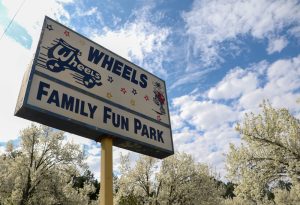A scooter swarm will soon be coming to Durham.
After weeks of deliberations, the City Council unanimously approved an ordinance to regulate the use of motorized scooters Monday night. At least 100 Bird scooters will hit the streets once the company receives permits—although there could be more.
“It always depend on the size of city,” said Servando Esparza, senior manager of government relations for Bird. “Our deployments and growth are based on demand.”
Residents can “realistically” expect to be able to ride scooters in 2019, transportation planner Bryan Poole told the Durham Herald-Sun.
Many questions still have to be worked out, though.
Esparza couldn’t give a definitive answer on whether Bird would be able to accept Faith ID’s—identification for undocumented, Spanish-speaking residents, provided by
El Centro Hispano, a local Hispanic advocacy and social services organization.
That frustrated council member Mark-Anthony Middleton, who said he had pushed Bird representatives for an answer to that question during the council’s work session Oct. 4.
“This council was very concerned the accessibility of the scooters, and ID was one of those factors that could curtail access. A lot of people don’t have driver’s licenses,” Middleton said.
Esparza also said that he couldn’t give an estimate on when he would be able to provide the council with an answer. The ordinance does not have a requirement that permittees accept certain forms of identification.
“We have to continue to push vendors to make scooters as accessible as possible,” said council member Charlie Reece.
Companies will be required to drop a “sufficient number” of scooters within “low and moderate income areas…as defined in the permit.” The city will also require companies to accept diverse payment types, including methods for those without smartphones or credit cards.
There also had been controversy about whether scooters would be defined as mopeds under North Carolina law, but that was not resolved by the new ordinance.
Scooters may be deemed mopeds, which would require them to have license plates, lights and rearview mirrors. Bird and Lime bikes do not have rearview mirrors or license plates, but they do have lights.
The ordinance was changed to define the scooters as “‘vehicles’ (without reference to mopeds).”
However, it still requires the companies to “comply with applicable local, state and federal laws, including state equipment and registration requirements.”
Senior City Attorney Fred Lamar says that it is up to the state, not the city, to regulate vehicle use on the roadways.
“We have not heard anything definitively from the DMV,” Lamar said. “There are lawyers that don’t think it’s a moped.”
The ordinance requires that riders wear helmets.
But it’s not clear how much the police will actually enforce that provision or any other aspect of the law. The police department said in a statement that it will “address violations of the law that present an obvious and immediate risk to public safety.
Addressing violations may entail notice to the Transportation Department so that it may pursue civil penalties against the business owners/operators,” the statement read.
However, since scooter riders aren’t required to carry a license, the police department is limited in the type of citations it could issue. The statement continued, “ … the Police Department does not anticipate being the primary agent for the regulation of these devices.”
Although Durham’s ordinance only requires that scooter drivers be 16 years old, Bird’s policies require drivers to be 18 years old. The ordinance leaves the decision for any age requirement above 16 up to the company, Poole said—a policy Bird does not plan on changing, Esparza said, noting that in most cities, the age requirement is 18.
The new ordinance also attempts to address the piles of scooters that may be left behind—something painfully familiar to what the city saw with Lime and Spin bikes. Companies will be required to move their scooters before they are parked in the same spot for 72 hours.
The Bicycle and Pedestrian Advisory Commission noted in a Sept. 18 letter that the Transportation Department is planning to create designated parking spots for shared bikes and scooters.
The city will charge $1,000 for companies to apply for permits and will charge $100 per shared scooter that hits the streets. It also will charge $50 for electric-assisted bikes and $25 for bikes that aren’t blessed with electric assistance.










Comments are closed.